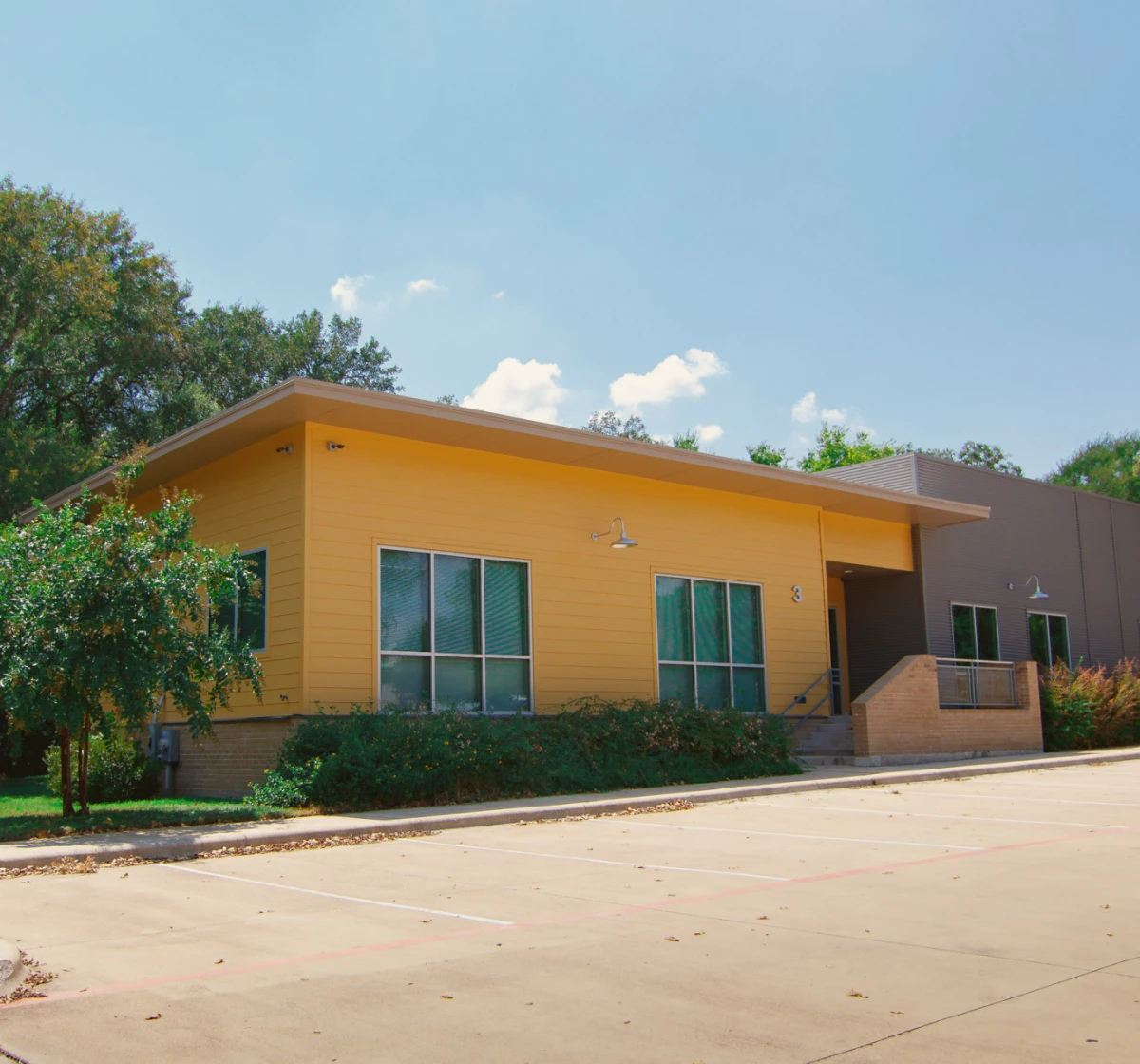We work with insurances. Verify yours now
Access the Best in Holistic Treatment For Men At The Last Resort
Yoga, an ancient practice with modern applications, is emerging as a powerful tool in the fight against substance abuse. The Last Resort – Texas’ leading treatment center for men – offers innovative programs that combine traditional recovery methods with the healing power of yoga.
For those seeking a comprehensive path to sobriety, this unique blend of mind-body techniques provides a fresh perspective on the journey to wellness.


Yoga therapy for addiction is an innovative approach that combines the ancient wisdom of yoga with contemporary addiction treatment methods.[1] This holistic technique recognizes that addiction affects not just the body but also the mind, emotions, and spirit as well.
At its essence, yoga therapy for addiction involves a range of practices designed to promote physical health, mental clarity, and emotional balance.[2] These include mindfulness exercises, specialized breathing techniques, physical postures, meditation, and relaxation methods. Each of these components plays a crucial role in helping you manage stress, reduce anxiety, improve self-awareness, and develop healthier coping mechanisms. By learning to connect with their bodies and regulate their emotions through yoga, those in recovery can find new ways to navigate the challenges of addiction and maintain long-term sobriety.


The beauty of yoga therapy lies in its adaptability and accessibility. It can be tailored to suit people at various stages of their recovery journey, from those in acute detoxification to those maintaining long-term sobriety. Moreover, the skills learned through yoga therapy extend far beyond the mat, providing people with practical tools they can use in their daily lives to manage stress, resist cravings, and cultivate a sense of inner peace.[3]
As part of a comprehensive treatment program, yoga therapy offers a powerful complement to traditional recovery methods, empowering you to take an active role in the healing process.
Yoga and addiction treatment work together by addressing the multifaceted nature of drug and alcohol abuse. It operates on the principle that addiction is not just a physical dependency but a complex interplay of physiological, psychological, and emotional factors.[4] By engaging the body, mind, and spirit simultaneously, yoga therapy provides a comprehensive approach to healing and recovery.
On a physiological level, yoga helps to restore balance to the body’s systems that have been disrupted by substance abuse. The physical postures and breathwork involved in yoga can aid in detoxification, improve circulation, and boost the immune system.[5] These practices stimulate the release of natural feel-good chemicals in the brain, such as dopamine and serotonin, which can help alleviate withdrawal symptoms and reduce cravings.
Psychologically, yoga therapy equips individuals with powerful tools for managing stress and regulating emotions. Through mindfulness and meditation practices, those in recovery learn to observe their thoughts and feelings without judgment, breaking the automatic cycle of reactivity that often leads to substance use. This increased self-awareness allows you to recognize triggers and develop healthier responses to challenging situations.
The spiritual aspect of yoga therapy – which doesn’t necessarily involve religious beliefs – helps you connect with a sense of purpose and meaning beyond addiction.
This can be particularly powerful in combating the feelings of isolation and disconnection that often accompany substance abuse.

Research increasingly supports the efficacy of yoga therapy in addiction treatment, with numerous studies highlighting its positive impact on recovery outcomes. A narrative review demonstrated that yoga was effective in reducing both substance use and substance-related cravings.[6]
Yoga therapy has also shown potential in managing chronic pain for those struggling with alcohol or opiate abuse.[7] The dual focus of yoga on both psychological and physical aspects makes it uniquely suited to address the complex interplay between chronic pain and addiction.
Furthermore, a recent systematic review saw seven out of eight studies showing significant positive results from yoga participation in substance use treatment, demonstrating improvements in primary outcomes such as anxiety, pain, or reduction of use.[8] Importantly, these benefits were observed when yoga was used in conjunction with other treatment modalities, suggesting that yoga therapy can be a valuable complement to traditional addiction treatment approaches as well.

At the Last Resort, you can expect a supportive and non-judgmental environment where you’ll be gently introduced to the healing practices of yoga, regardless of your prior experience or physical fitness level. Initially, you might feel a mix of curiosity and apprehension about incorporating yoga into your recovery process. Rest assured, our skilled instructors understand these feelings and will guide you at a comfortable pace.

You’ll start with basic breathing exercises and gentle movements, gradually progressing to more advanced practices as your confidence and abilities grow. Throughout your treatment, you’ll participate in regular yoga sessions that are specifically tailored for individuals in recovery.
These classes will be more than just physical exercise—they’ll be opportunities for self-reflection, emotional release, and building connections with others on similar paths. As you learn to use your breath and body awareness as tools for managing difficult emotions, you may find yourself discovering new ways to cope with stress, anxiety, and cravings.
You might notice subtle yet profound changes as you progress in your treatment. You may sleep better at night, feel more at ease in your own skin, or find it easier to stay present during challenging moments. The skills you learn in yoga therapy sessions will extend beyond the mat, becoming valuable resources in your daily life and ongoing recovery journey.
Remember, at The Last Resort, yoga therapy is not about perfecting poses or achieving physical feats. It’s about reconnecting with yourself, nurturing your body and mind, and developing a set of practical tools to support your sobriety. With patience and persistence, yoga becomes not just a part of your treatment but a lifelong practice that supports your well-being and recovery.

We recognize that many men struggle with vulnerability and emotional expression. Our yoga therapy sessions create a safe, judgment-free space where men can reconnect with their bodies and emotions.
Our approach goes beyond traditional yoga classes, incorporating elements specifically designed to support men in addiction recovery. We focus on strength-building poses that boost confidence, breathwork techniques to manage stress and anger, and mindfulness practices that enhance self-awareness. These sessions also allow men to build camaraderie and support each other in a non-competitive environment.
Yoga therapy complements traditional addiction treatment methods by offering a holistic approach to recovery. It addresses the physical, mental, and emotional aspects of addiction by promoting relaxation, stress reduction, and mindfulness. Yoga also helps to develop greater self-awareness and emotional regulation, which are crucial for long-term sobriety.
Yoga therapy can address various types of addiction, including substance use disorders and co-occurring disorders such as anxiety and depression. It provides a supportive framework for individuals recovering from addictive behaviors to cultivate healthier coping mechanisms and lifestyles.
Certain yoga techniques and styles are particularly effective for addiction treatment. Practices that focus on gentle movements, breath awareness (pranayama), meditation, and relaxation (such as restorative yoga or yin yoga) are often used. These techniques help reduce stress, regulate emotions, and promote inner calm, which are beneficial for individuals in recovery.
Yes, yoga therapy can help with mental health issues commonly co-occurring with addiction, such as anxiety, depression, and trauma-related disorders. Yoga promotes mindfulness, reduces symptoms of stress, and enhances emotional resilience. It provides people with tools to manage their mental health symptoms effectively, which is essential for sustained recovery (while also serving as a complementary treatment for evidence-based practices).
Yes, the practice of yoga can be adapted to suit individuals of all ages and fitness levels. Sessions can be modified to accommodate physical limitations or health concerns. Yoga therapy focuses on gentle movements, breathing techniques, and relaxation practices, making it accessible and beneficial for people at various stages of fitness or recovery.
[1] Contemporary Definitions of Yoga Therapy – International Association of Yoga Therapists (IAYT). (n.d.). Www.iayt.org. https://www.iayt.org/page/ContemporaryDefiniti on July 3, 2024
[2] Khanna, S., & Greeson, J. M. (2013). A narrative review of yoga and mindfulness as complementary therapies for addiction. Complementary Therapies in Medicine, 21(3), 244–252. https://www.ncbi.nlm.nih.gov/pmc/articles/PMC3646290/ on July 3, 2024
[3] Woodyard, C. (2011). Exploring the therapeutic effects of yoga and its ability to increase quality of life. International Journal of Yoga, 4(2), 49–54. https://www.ncbi.nlm.nih.gov/pmc/articles/PMC3193654/ on July 3, 2024
[4] Fluyau, D., & Charlton, T. E. (2021). Addiction. PubMed; StatPearls Publishing. https://www.ncbi.nlm.nih.gov/books/NBK549783/ on July 3, 2024
[5] Ali, S., Balaji, P., & Varne, S. (2012). Physiological effects of yogic practices and transcendental meditation in health and disease. North American Journal of Medical Sciences, 4(10), 442. https://www.ncbi.nlm.nih.gov/pmc/articles/PMC3482773/ on July 3, 2024
[6] Kuppili, P. P., Parmar, A., Gupta, A., & Balhara, Y. P. S. (2018). Role of Yoga in Management of Substance-use Disorders: A Narrative Review. Journal of Neurosciences in Rural Practice, 9(1), 117–122. https://www.ncbi.nlm.nih.gov/pmc/articles/PMC5812135/ on July 3, 2024
[7] APA PsycNet. (n.d.). Psycnet.apa.org. https://psycnet.apa.org/record/2018-44952-001 on July 3, 2024
[8] Walia, N., Matas, J., Turner, A., Gonzalez, S., & Zoorob, R. (2021). Yoga for Substance Use: A Systematic Review. The Journal of the American Board of Family Medicine, 34(5), 964–973. https://www.jabfm.org/content/34/5/964.abstract on July 3, 2024
Our admission specialists are ready to talk with you 24/7 about starting the journey. We always treat each caller with the utmost respect, detailing your treatment options and respecting your confidentiality.
Based on your assessment, we’ll work together to create a customized treatment plan that addresses your needs, ensuring you have the support and resources necessary to achieve your goals.
The Last Resort is in-network with most major insurance companies. Fill out the form below to verify your healthcare coverage within the hour.
We’ll welcome you to our campus and start laying the groundwork for a successful, long-term recovery.